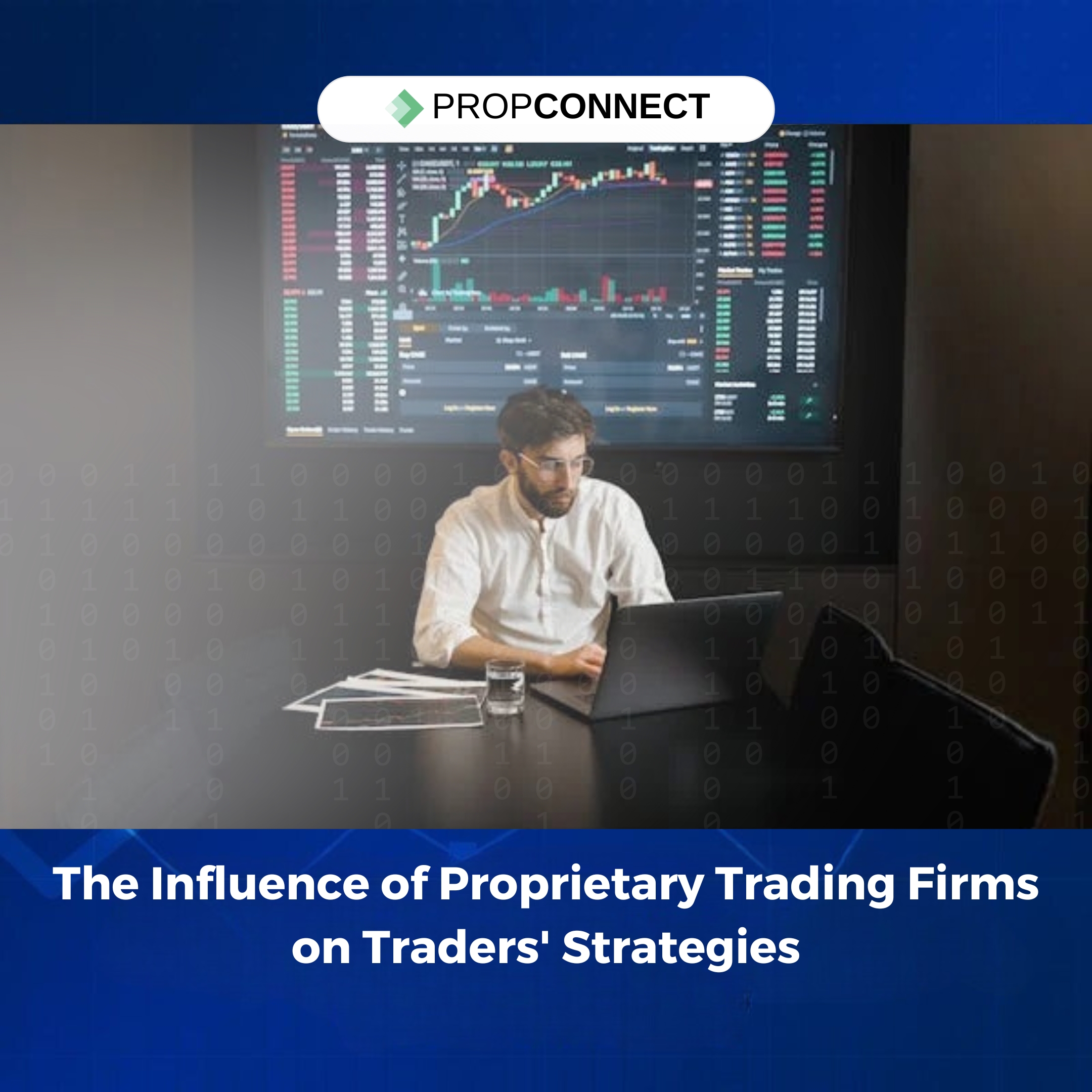Articles
The Influence of Proprietary Trading Firms on Traders' Strategies
Prop firm traders are obliged to abide by trading regulations, policies, and firm guidelines. These could include limitations on trading instruments, forbidden trading methods, or standards for order execution and risk management.

Prop firms, often referred to as proprietary trading firms, are important components of the forex market ecosystem because they give traders access to resources, capital, and technology that they need to take advantage of trading opportunities. Prop firms and traders have a relationship that goes beyond only financial support, though, since it also has a variety of other effects on traders' trading tactics. Let's examine how prop firms affect traders' trading strategies and decision-making processes.
Access to Capital: Providing traders with extensive capital access is one of the most important ways prop firms influence traders' strategies. Prop traders can use the firm's cash to take on bigger positions and use more aggressive trading tactics, in contrast to retail traders, who might only have a small amount of money to work with. Due to their increased ability to raise funds, traders are able to expand their businesses, diversify their holdings, and maybe increase returns.
Risk Management Framework: To safeguard their investments and reduce losses, proprietary trading firms generally have strong risk management frameworks in place. Prop firm traders are obligated to follow risk management protocols, which include tight stop-loss procedures, maximum drawdown levels, and position sizing limitations. This focus on risk management encourages discipline, caution, and capital preservation, which has an impact on traders' methods.
Technology and Infrastructure: To give traders the means to carry out their plans with efficiency, prop firms make significant investments in cutting-edge trading technology and infrastructure. This could involve access to proprietary trading algorithms, state-of-the-art analytics tools, and platforms with rapid execution. These technical developments give traders access to better order management tools, faster execution speeds, and better market data analysis, all of which help them execute plans more effectively and precisely.
Training and Mentorship Programs: To assist traders in honing their craft and perfecting their tactics, a lot of prop firms provide thorough training and mentoring programs. Mentors and seasoned traders offer advice, criticism, and industry insights to help novice traders understand the intricacies of the foreign exchange market. Through mentoring programs, traders improve their analytical skills, pick up important knowledge, and fine-tune their trading methods based on experience and knowledge from the real world.
Performance Metrics and Assessment: To evaluate the performance and profitability of traders, proprietary trading firms frequently utilize performance metrics and assessment criteria. Trader performance is evaluated in relation to pre-established benchmarks, including drawdown limitations, risk-adjusted returns, and profit targets. The process of evaluating performance has an impact on traders' strategies by encouraging them to concentrate on maximizing returns while lowering risks. In order to maximize their profits and satisfy firm expectations, traders can modify their methods in response to performance feedback.
Collaboration and Peer Learning: Prop trading firms create a cooperative atmosphere where traders may exchange best practices, tactics, and insights with one another. Among traders, this peer-to-peer learning culture fosters knowledge sharing, idea production, and helpful criticism. Through group learning and experimentation, traders question their preconceptions, acquire fresh insights, and improve their trading techniques by cooperating in conversations and exchanging experiences.
Adherence to Firm Guidelines and Policies: Prop firm traders are obliged to abide by trading regulations, policies, and firm guidelines. These could include limitations on trading instruments, forbidden trading methods, or standards for order execution and risk management. These corporate policies, which act as checkpoints to guarantee compliance, uphold order, and safeguard the capital and reputation of the organization, have an impact on traders' methods.
In Summary, prop firms have a big influence on how traders in the forex market formulate their tactics and make decisions. Prop firms have a significant impact on traders' ways of trading through capital availability, strong risk management frameworks, cutting-edge technology, training and mentorship programs, performance evaluation criteria, collaborative learning environments, and strict adherence to norms. Through the utilization of prop firms' resources and assistance, traders can formulate and implement efficient strategies that maximize gains, control uncertainty, and adeptly handle the intricacies of the foreign exchange market.

